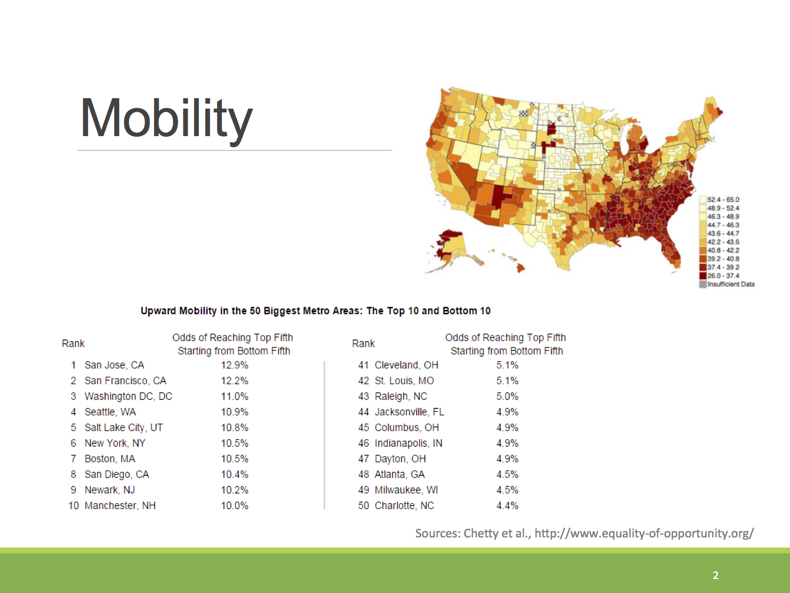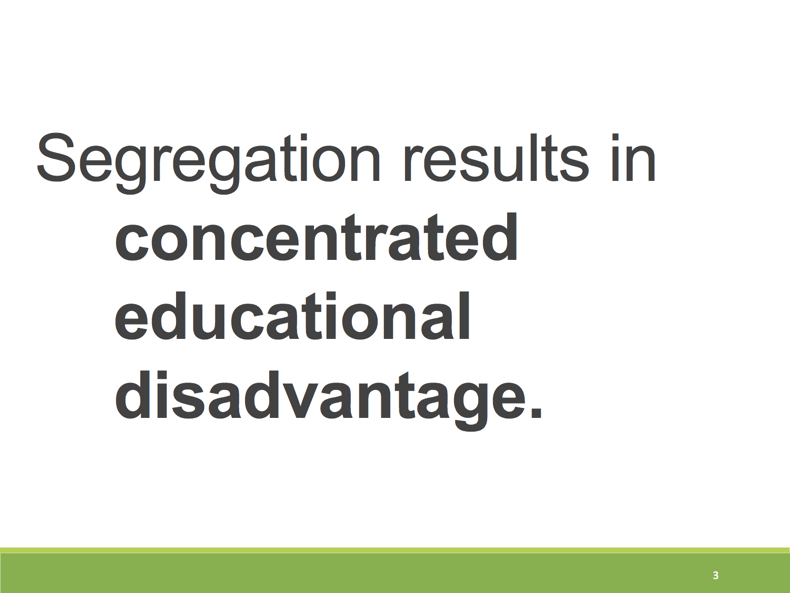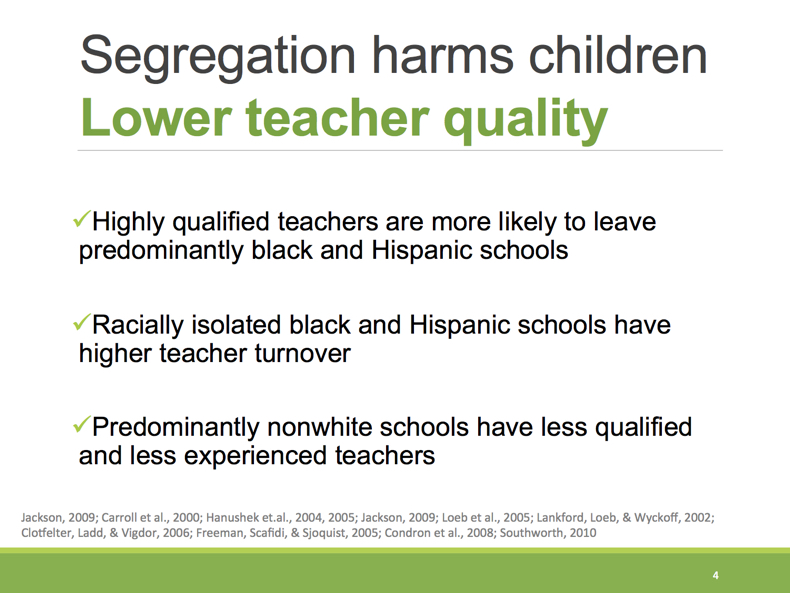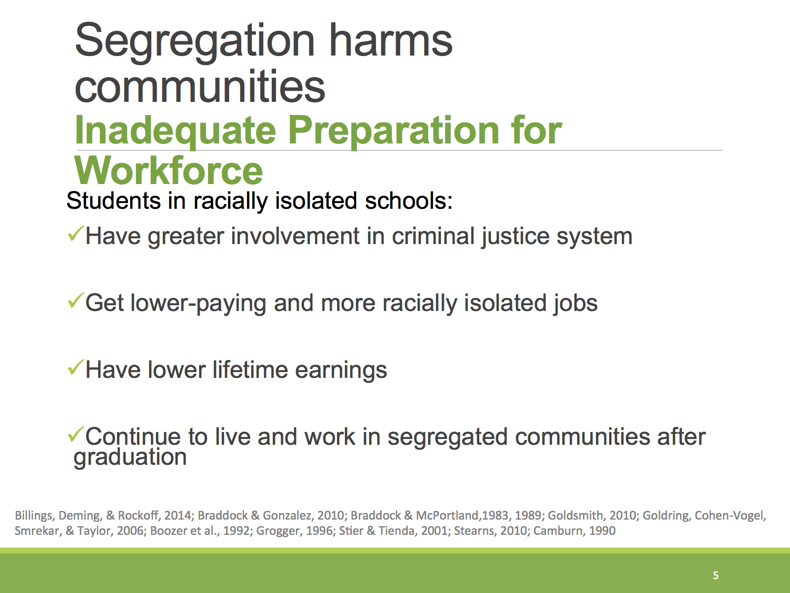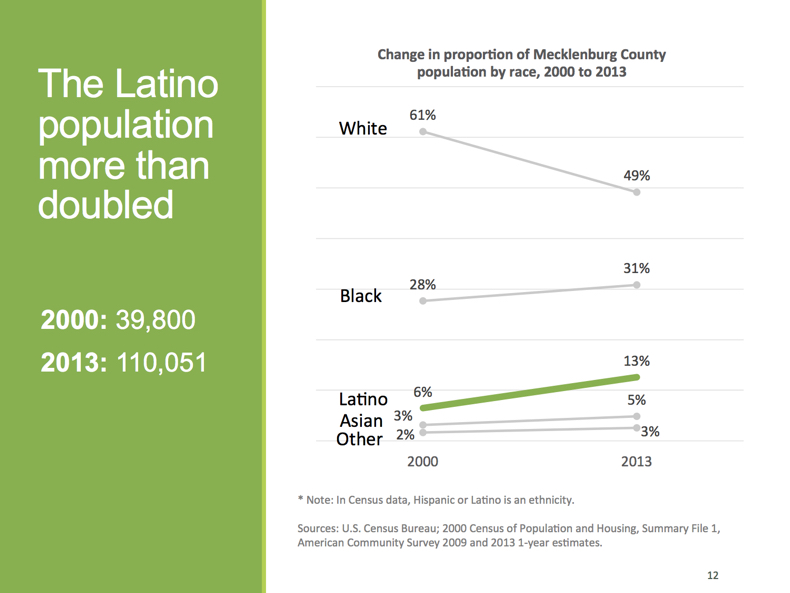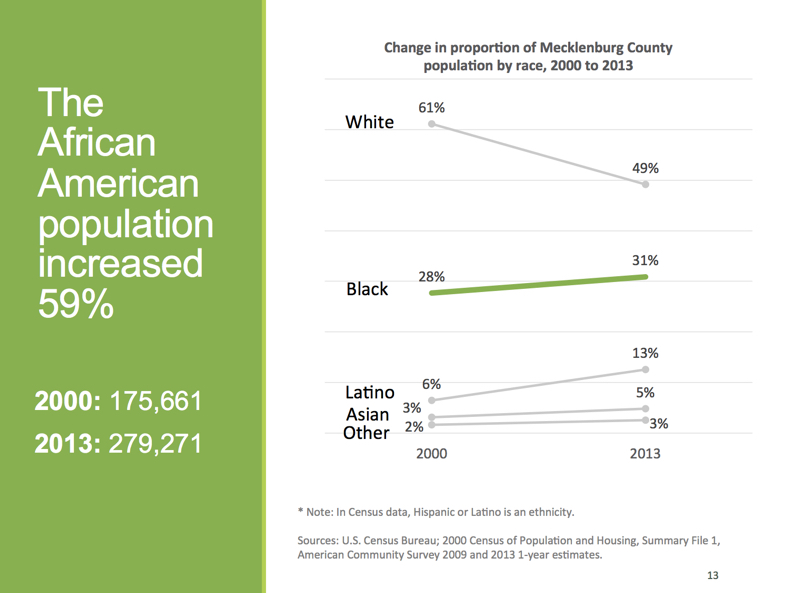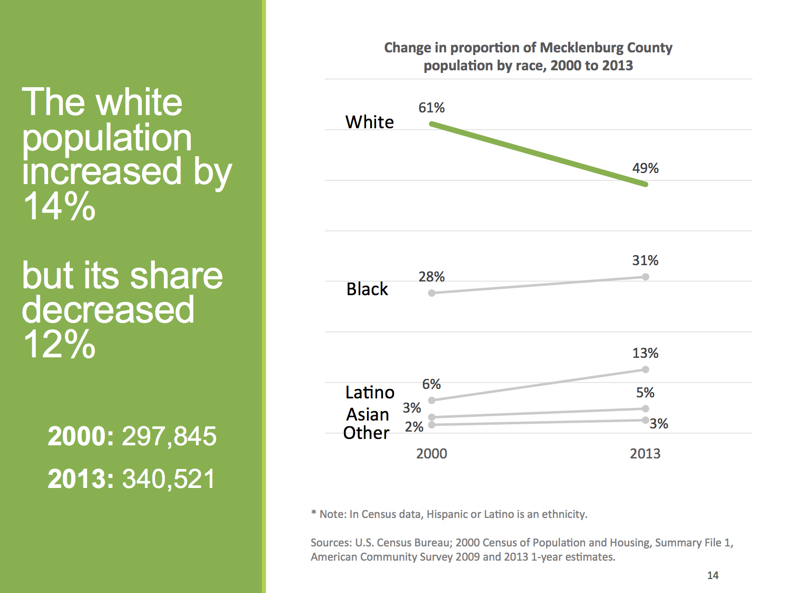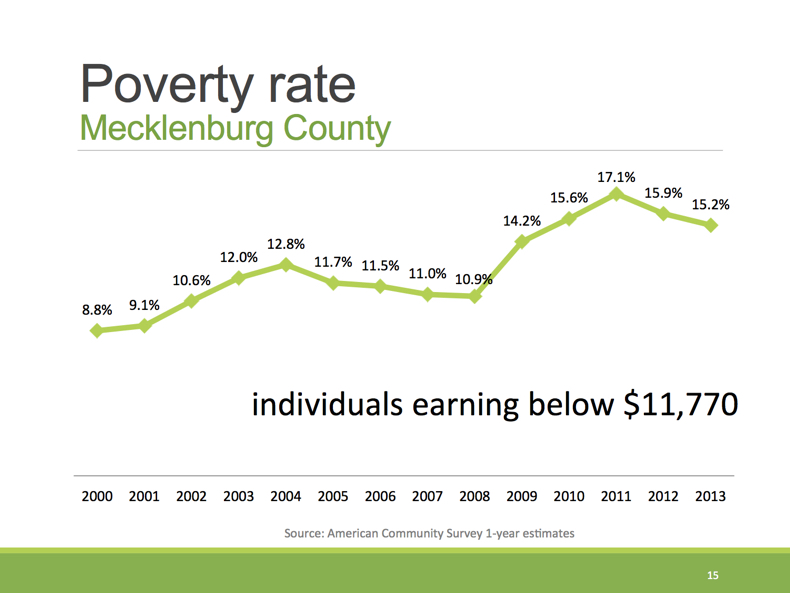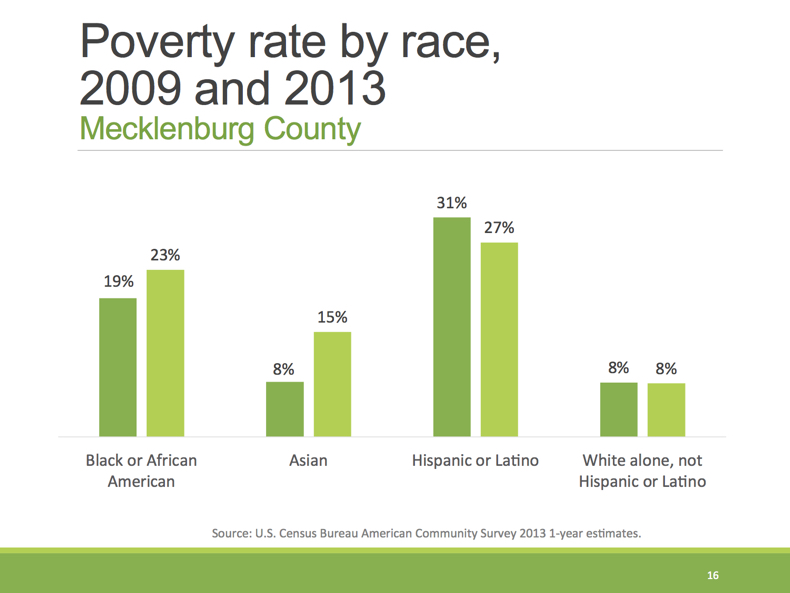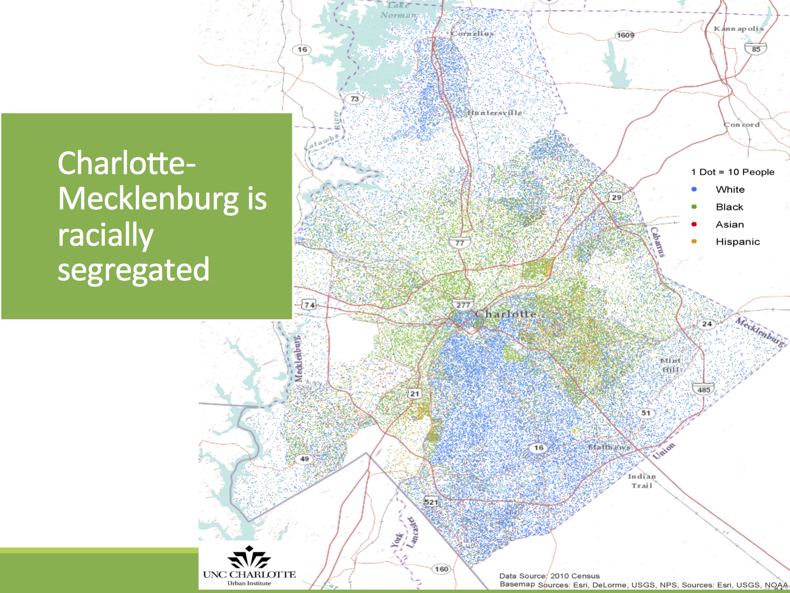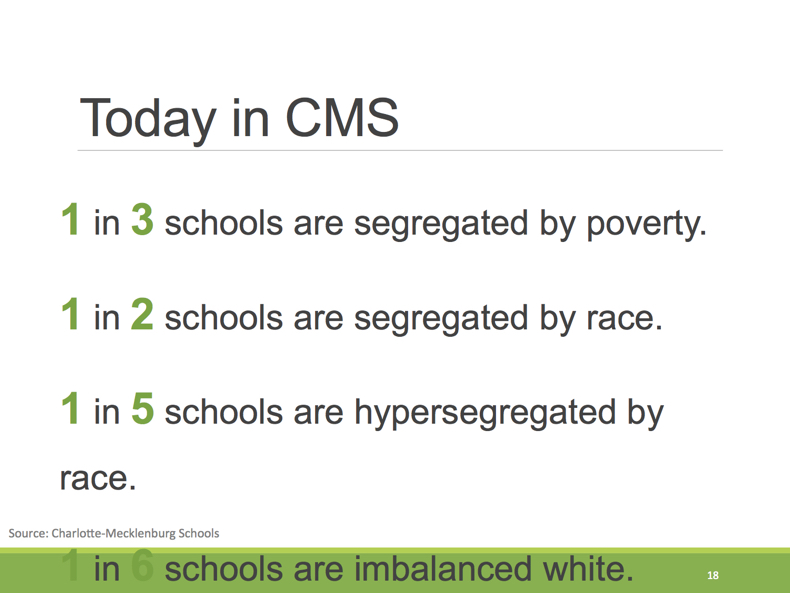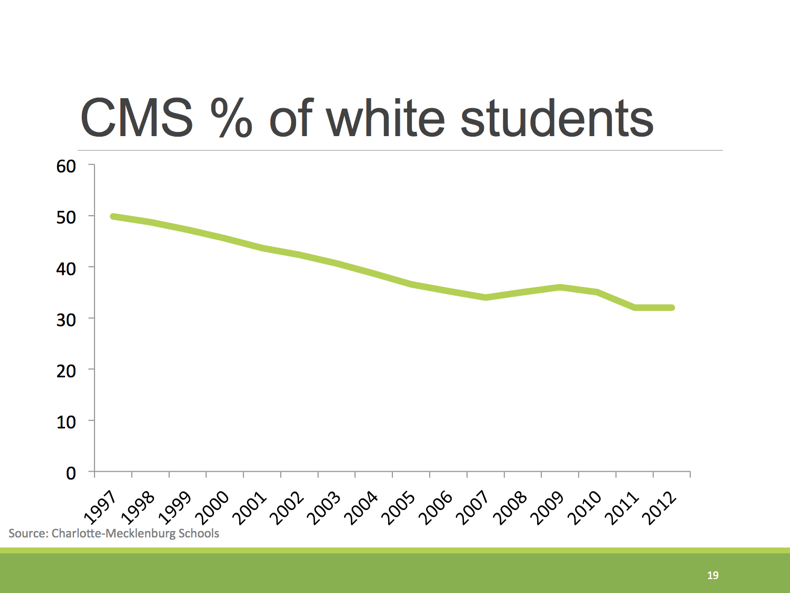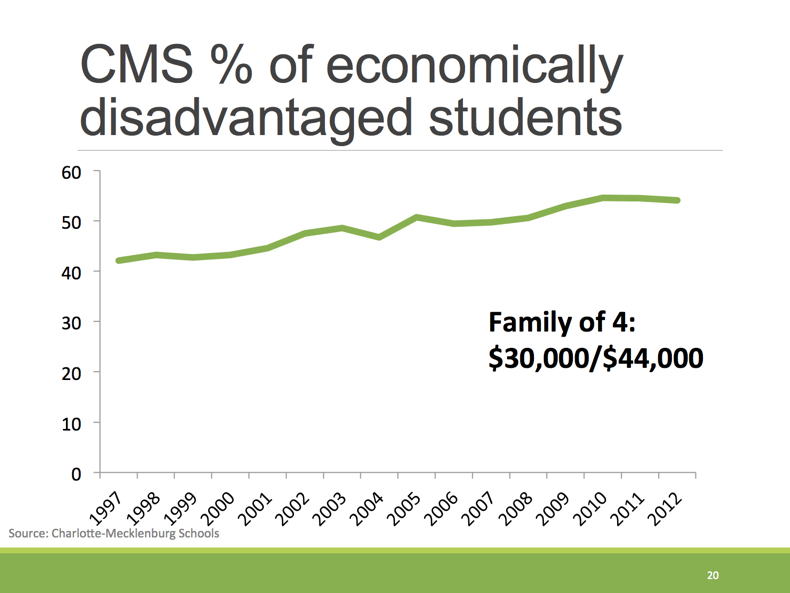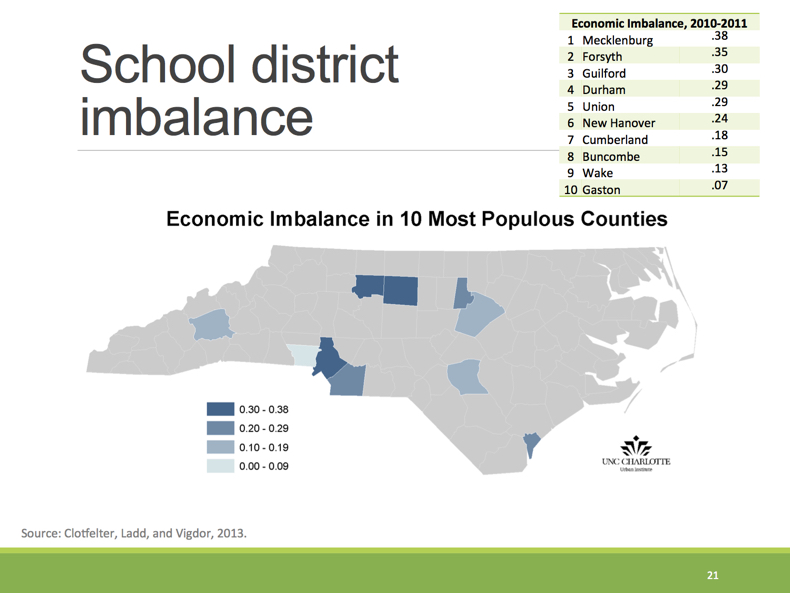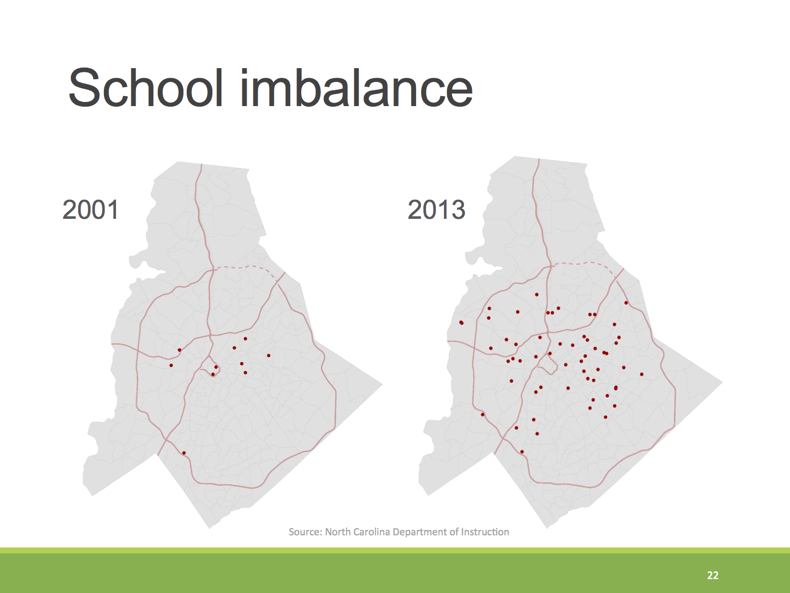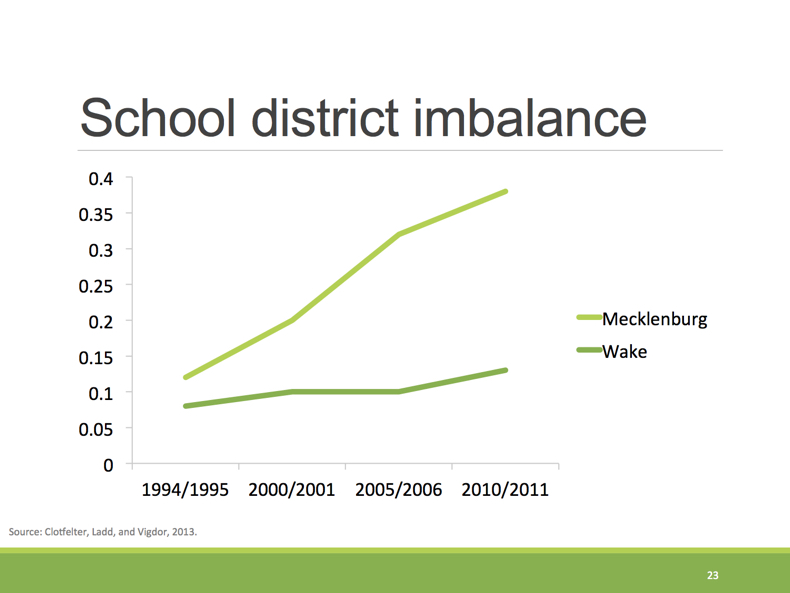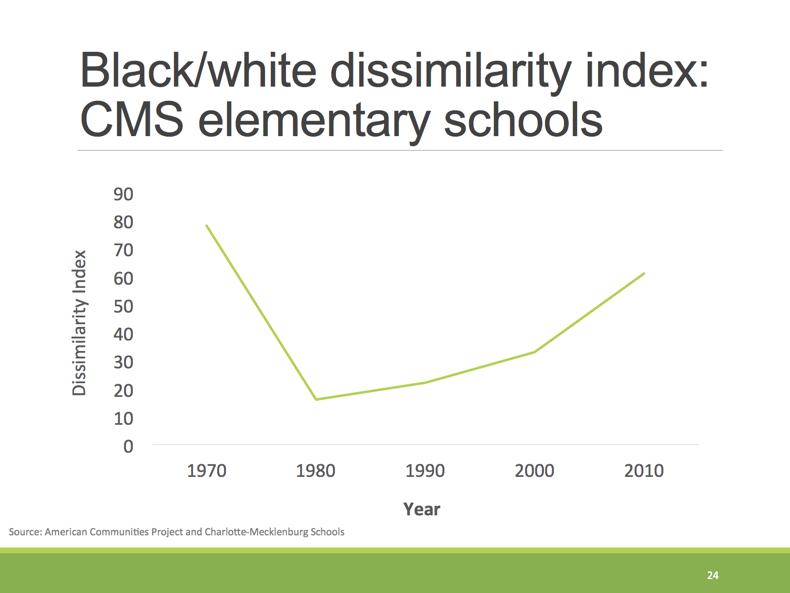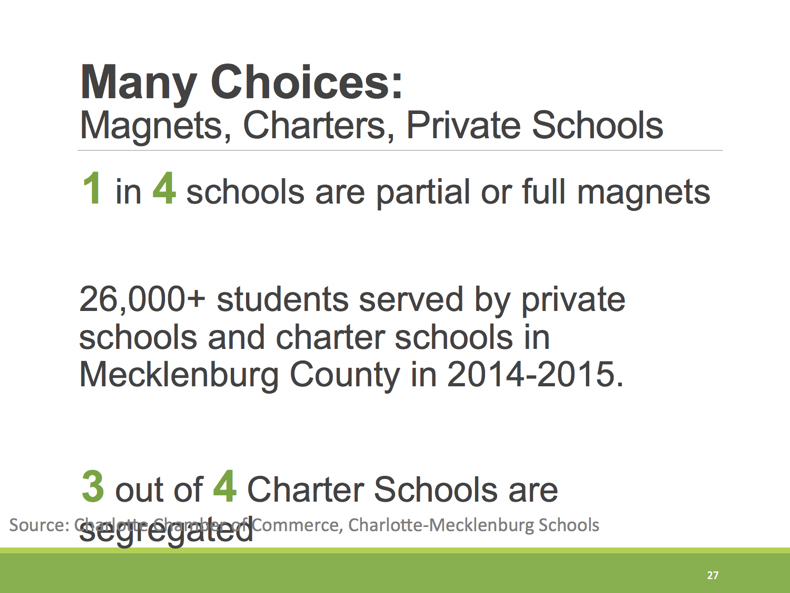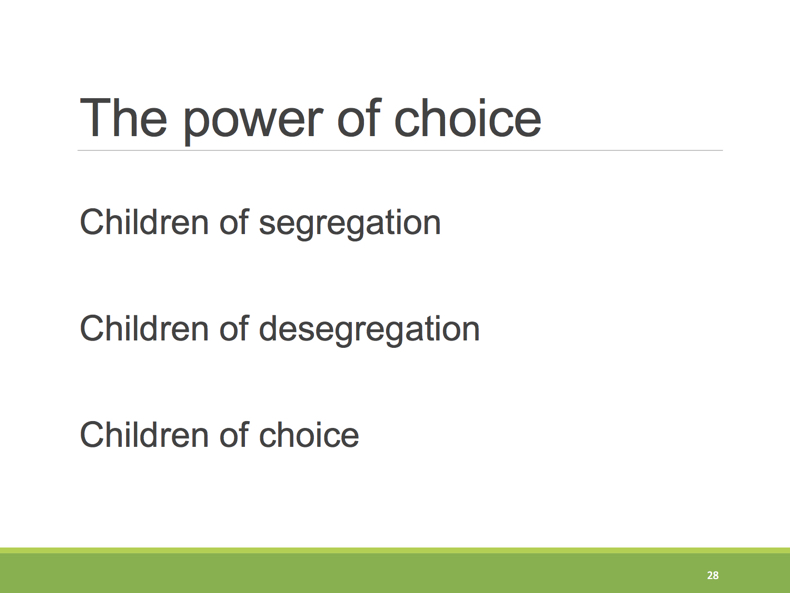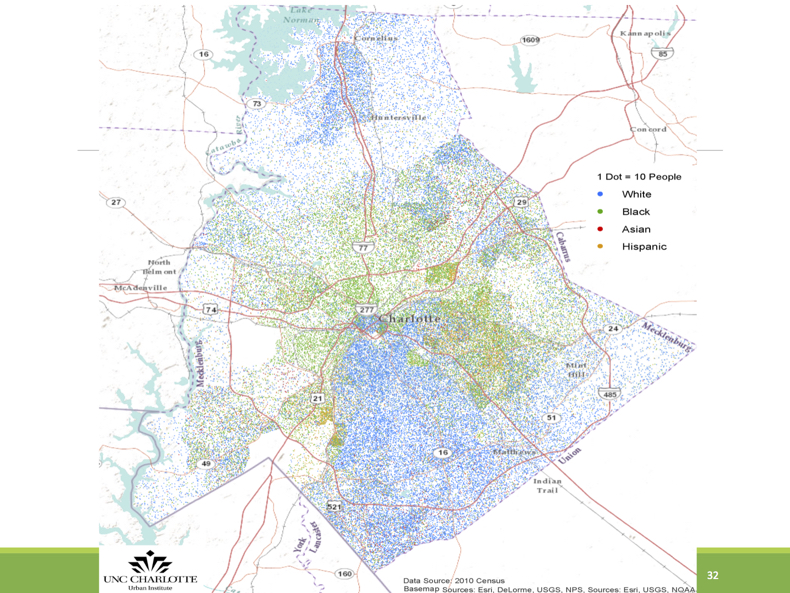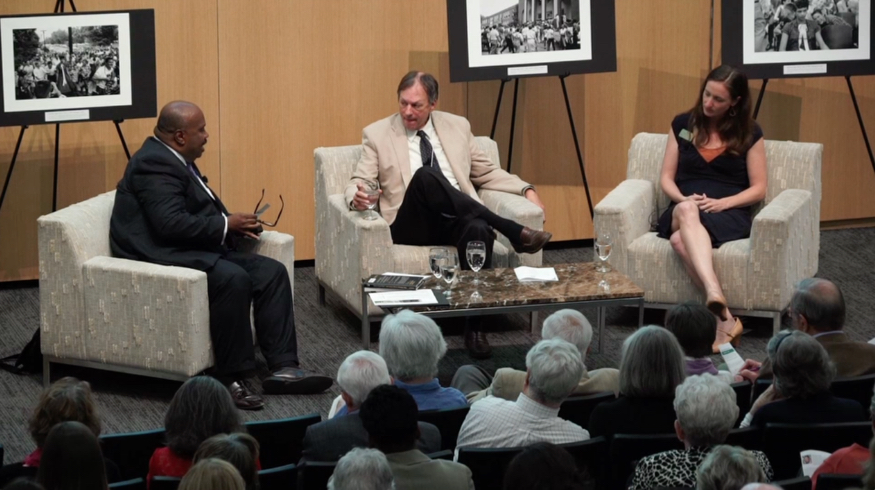
Image from video below by Daniel Crawford
May 5, 2015
Steve Crump, above left, led author Frye Gaillard and researcher Amy Hawn Nelson through an evening program devoted to the legacy of Swann v. Mecklenburg. That case challenged the 1960s pattern of racial segregation in student assignment in Charlotte-Mecklenburg Schools. The case led to a U.S. Supreme Court decison in 1971 that upheld the use of busing as a tool to remove vestiges of legally mandated segregation.
Gaillard rehearsed high points in the community’s efforts to implement desegregation through 1999, when Reagan appointee Robert Potter held in a U.S. District Court ruling that all those vestiges had been removed and that CMS could no longer use race as a factor in assigning children. Gaillard termed Potter’s decision “shameful.” But the school board, cowed by neighborhood-school advocates on one side and lawyers who counseled against every attempt to retain desegregation, launched in 2002 a school assignment plan that, with changes, remains in effect.
Nelson then presented research showing just how segregated and hypersegregated the schools are today, and how socioeconomic segregation among students is even more thorough than the racial segregation.
Below is the video recording the 90-minute session, held at UNCC’s Charlotte City Center building in uptown Charlotte. As Nelson spoke, the sold-out crowd saw the slides placed on this page below the video. There are no obvious markers in the video to signal when to move from one slide to another but viewers can let the video run and browse the slides to get some sense of the impact of the presentation on those present.
If your browser asks for a password, use capital letters UNCC

